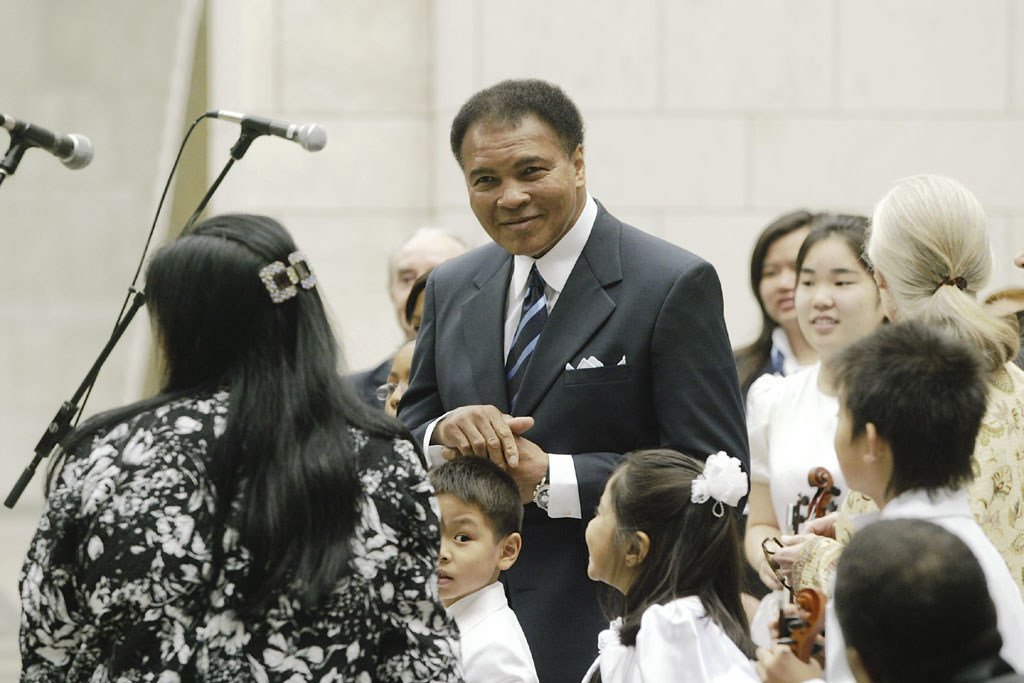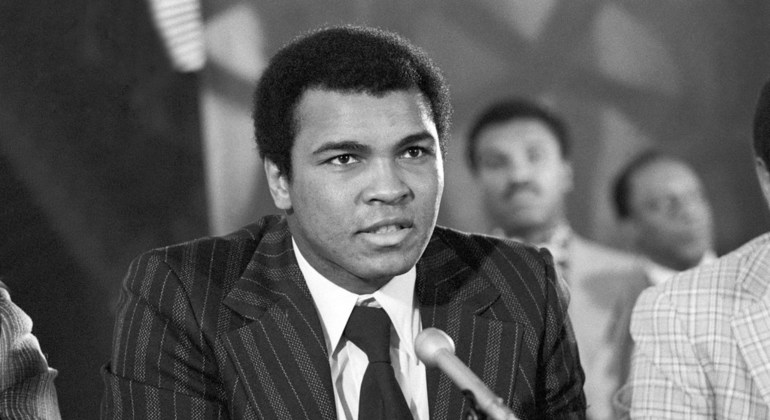“Here’s a little Black boy from Louisville, Kentucky, sitting in the United Nations talking to presidents of the world, why? Because I’m a good boxer,” he said at a press conference at UN Headquarters in 1979. “I needed boxing to get here. So, my purpose is to use boxing to get to people.”
Devoting most of his time outside the boxing ring to the pursuit of peace, Mr. Ali had earlier delivered a statement at the UN the year before to address the UN Special Committee against Apartheid in South Africa.
From the 1970s until his death in 2016, the United States Olympic gold medallist floated like a butterfly and stung like a bee, as he often aptly described himself, both inside and outside the boxing ring.
Listen to our Podcast Classic episode below.
God, boxing and fame
Over his career, Mr. Ali supported relief and development initiatives. He hand-delivered food and medical supplies to hospitals, street children and orphanages in Africa and Asia.
In a press conference at UN Headquarters in 1979, Mr. Ali spoke about God, boxing and using his fame for a good cause. The son of a sign painter, he also talked about painting for peace.
Listen to the full press conference here.

Muhammad Ali (centre) attends a 2004 ceremony to mark the International Day of Peace at UN Headquarters. (file)
Giving back to fight African drought
Mr. Ali also visited UN Headquarters in 1975, ahead of his title fight against Chuck Wepner, announcing that the promoters would give 50 cents from the proceeds of each ticket sold to African drought relief.
At the time, promoter Don King said he expected an audience of 500,000 to a million via closed-circuit TV. The money was divided equally between the UN Children’s Fund (UNICEF) and Africare, a Black aid organization, to help dig wells in Senegal and Niger.
UN Messenger of Peace
Known worldwide as “the Greatest”, three-time World Heavyweight Champion boxer Muhammad Ali was designated UN Messenger of Peace in 1998.
Bringing people together by preaching “healing” to everyone irrespective of race, religion or age, over the years Mr. Ali was a relentless advocate for people in need and a significant humanitarian actor in the developing world.
Upon his death in 2016, then Secretary-General Ban Ki-moon said the UN was grateful “to have benefitted from the life and work of one of the past century’s great humanitarians and advocates for understanding and peace”.
On #ThrowbackThursday, UN News is showcasing pivotal moments across the UN’s past. From the infamous and nearly-forgotten to world leaders and global superstars, stay tuned for a taste of the UN Audiovisual Library’s 49,400 hours of video recordings and 18,000 hours of audio chronicling.
Visit UN Video’s Stories from the UN Archive playlist here and our accompanying series here. Join us next Thursday for another dive into history.



